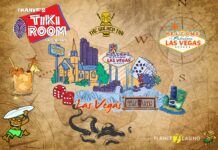Some nations love to wager more than others. Gambling, it seems, is in their blood. Is it a result of national character, physical geography, history, law or simply chance? In this article, we take a look at the world’s leading gambling nations, Australia, Ireland and the United States respectively, and delve into the evolution of casino gambling in these countries from the latter half of the 20th century until today. Fasten your seatbelts and get out the popcorn, it’s a fascinating ride.
Gambling in Australia
Australians love to gamble. In fact, a quick look at the stats shows that they are the world’s number 1 gamblers. That’s right, according to the Queensland Government Statistician’s Office last report, in 2014-2015 Australian adults put down an average AUD 1,172.14 ($904) per year on bets. Not bad, when you consider the world’s number two gambling nation, Ireland, comes in at around $600 per year vs about $400 for Americans.
So, what leads Australians to gamble so much? Is it their rough and tumble frontier spirit? Some need for rebellion? A propensity for risk and thrill seeking? Their proximity to crocodiles and kangaroos? Brilliant marketing on the part of an industry that’s tapped deep into the national psyche? A combination of all of the above? We may never really know the answer.
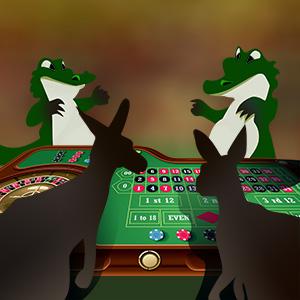 Where it all began
Where it all began
Experts say that today’s rise in Australian gambling began back in 1973 with the construction of the Wrest Point Hotel and Casino in Tasmania. The event was a successful marketing blitz. It was televised nationwide and opened the floodgates for investment by showing off the state’s tourism potential. Australian’s fascination with casino gambling and the glitz and glamour that surrounds it was officially born.
At the same time, on the other end of the world, back in the Mojave desert, a whole city devoted to casino gambling, Las Vegas, was raising its head higher and higher above the desert sands. The post war years in Vegas, the 1950s-1960s, saw the first real gambling boom but, despite the excitement, the boom was over shadowed by the Cold War and tempered by both conservative religious beliefs in nearby Utah, rising mushroom clouds from the near-by nuclear testing at the Nevada Test Site and the corrosive influence of the Chicago mafia moving west.
 By the time the 1970s came along, mob influence was at last slowly waning, thanks in large part to the Racketeering Influenced and Corrupt Organizations Act (RICO) of 1970, signed into law by President Richard M. Nixon, which gave the Feds new powers to fight organized crime. The clean-up pushed the sleaze back into the shadows and transformed casino gambling into corporate backed entertainment, breathing new life and interest in casino development not just in Vegas and Atlantic city but around the world. Australia was no exception.
By the time the 1970s came along, mob influence was at last slowly waning, thanks in large part to the Racketeering Influenced and Corrupt Organizations Act (RICO) of 1970, signed into law by President Richard M. Nixon, which gave the Feds new powers to fight organized crime. The clean-up pushed the sleaze back into the shadows and transformed casino gambling into corporate backed entertainment, breathing new life and interest in casino development not just in Vegas and Atlantic city but around the world. Australia was no exception.
From smoky backrooms to Disney style family fun
By the early 1980s, gambling laws were being liberalized globally and growing public acceptance of gambling as a form of entertainment (helped no doubt in part by all the bright lights, big names, fabulous restaurants and stunning acts at casinos around the world) was on the rise. As the Cold War drew to its dramatic close with the fall of the Berlin Wall in 1989, Las Vegas had completely reinvented itself into a megaresort family fun mecca, a sort of Disneyland with slot machines, and casinos the world over were scurrying to the do the same.
Hoping to get in on the global buzz, even New York real estate mogul Donald Trump started developing mega luxury casino properties in Atlantic City as early as 1982. By 2011 he had run three, the Trump Plaza Casino and Hotel, the Trump Marina Casino and the Trump Taj Mahal into the ground. But that’s another story. Even without the mafia around, mega resorts are no easy business.
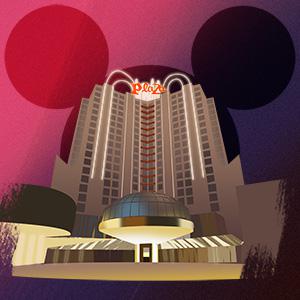 Fortunately for the casino industry, the world had entered the digital age and online gambling made its debut. Experts say it is likely a combination of the transformation of gambling into entertainment, together with the accessibility of online gambling that continued to increase the allure of casino gambling in Australian eyes.
Fortunately for the casino industry, the world had entered the digital age and online gambling made its debut. Experts say it is likely a combination of the transformation of gambling into entertainment, together with the accessibility of online gambling that continued to increase the allure of casino gambling in Australian eyes.
Regional entrepreneurs have since picked up on the vibe and plans to cash in on the wave of interest and acceptance are already in the works. Tony Fung, a Hong Kong banking billionaire, will open an $8.5-billion resort near Cairns. It is set to employ 20,000 people, and boost Queensland’s economy by $1.4 billion a year. From the Gold Coast to Sydney Harbor, megaresort casinos filled with slots, video poker machines, roulette tables, blackjack tables and high stakes poker rooms are in the works and fueling Australians gambling craze. Gambling, it seems, is in their blood to stay.
Gambling in Ireland
The Emerald Isle, land of Guinness beer, shamrocks, leprechauns, James Joyce, U2 and, of course, gambling. Second only to the Australians in the amount spent per capita on wagering, the Irish relish a good wager. Statistics show around 5 billion EUR ($5.3 billion) are bet each year in Ireland, coming in at 10,000 EUR per minute, and all for a population of 4.6 million people!
In recognition of the Irish’s penchant to play and the modern age, Ireland first legalized online gambling back in 2003, seeing regulation as a great way to drive cash into the state’s coffers. The Irish were known to be notorious sports betters, and by 2004 the first online bookmaking site went live, paving the way for dozens to follow.
 Online casino gambling evolved at a slower pace, in part due to the fact that it resided in a legal gray area. The Gambling Control Bill of 2013 rapidly changed all that by replacing the Betting Act of 1931 and Lotteries Act of 1956 with a modernized version of the law, making all forms of online gambling legal in Ireland. A regulatory regime was established to license local online casinos taxing them at a rate of 1% of gross gaming revenue, while conveniently allowing Irish citizens already regulars elsewhere, like Planet 7, to bet through foreign sites to their Irish heart’s content.
Online casino gambling evolved at a slower pace, in part due to the fact that it resided in a legal gray area. The Gambling Control Bill of 2013 rapidly changed all that by replacing the Betting Act of 1931 and Lotteries Act of 1956 with a modernized version of the law, making all forms of online gambling legal in Ireland. A regulatory regime was established to license local online casinos taxing them at a rate of 1% of gross gaming revenue, while conveniently allowing Irish citizens already regulars elsewhere, like Planet 7, to bet through foreign sites to their Irish heart’s content.
Online gambling in the US, is it legal?
Across the country, every day, tens of thousands of Americans logon to the internet from the comfort of their own home to gamble online. Some gamble for fun, some for thrills, some to make money, some to pass the time. Many are far removed from the casinos of Las Vegas and Atlantic City, spread out across the great American continent, in rural communities or homesteads far from the nearest Indian reservation and bingo parlor.
Gambling permeates America, it’s part of its heart and soul. The legal system itself is a war or resources, one side betting against the other with winner take all, political office a competition with supporters betting their fortunes, hopes and dreams on the outcome. From the great push west during the Gold Rush, to the Texas oil boom, from the .com bubble to the Wall Street induced global financial crises, Americans have long been willing to wager it all 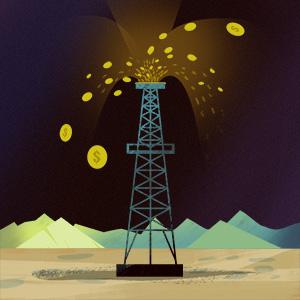 on the hope of tapping into the riches of the American Dream.
on the hope of tapping into the riches of the American Dream.
Gambling is part of our culture and our heritage. Mississippi river boat casinos and dusty western saloons with their proverbial and often deadly poker games are all as integral to American cultural identity as the quest for wealth itself. And gambling, like striking gold or oil, can make you rich… in a heartbeat.
The law of attraction
The flow of money has always attracted hangers on, undesirables, thieves, con men, power hungry mafia thugs, and a cast of sleazy, marginal characters oft seen in Hollywood movies. And casinos are associated with one thing – money. Yet times they are a changing. The seedy, sleazy mafia run Vegas Strip of yesteryear is today a megaresort, a squeaky-clean family fun oasis on par with Disneyland, the self-proclaimed “happiest place on earth”.
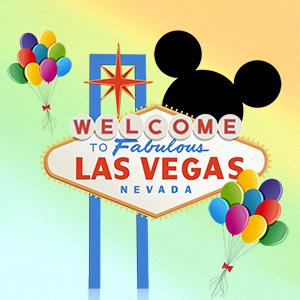 Gambling itself is no longer directly associated with smoke filled back rooms, hookers, bootleg whiskey and mob bosses. The World Series of Poker attracts tens of thousands of players and a million plus more viewers watching at home on ESPN every year. Gambling has entered the mainstream as a form of entertainment and technology has been its enabler. Thanks to the internet, basically anyone of legal age, almost anywhere in the world with access to an online computer, can indulge. That’s a pretty tectonic shift in accessibility, acceptance and a whole lot of what we can honestly call “new”.
Gambling itself is no longer directly associated with smoke filled back rooms, hookers, bootleg whiskey and mob bosses. The World Series of Poker attracts tens of thousands of players and a million plus more viewers watching at home on ESPN every year. Gambling has entered the mainstream as a form of entertainment and technology has been its enabler. Thanks to the internet, basically anyone of legal age, almost anywhere in the world with access to an online computer, can indulge. That’s a pretty tectonic shift in accessibility, acceptance and a whole lot of what we can honestly call “new”.
Getting up to speed
One of the great things about the information super highway, the age of big data and internet everything is that it moves fast, really fast. The newest hottest thing today can easily be archaic tomorrow. We’re living in a sort of crazed hyper reality. New technologies are born, live their lifespans and die as quick as a hatch of mayflies. Think of what happened to Betamax when VHS came along or VHS when the DVD came along or the DVD when the USB stick came along. And on it goes at an exponentially increasing rate.
Of course, with that speed of change comes massive challenges, especially when it comes to the rules of the game. Old ways of thinking do not apply. Laws from the 1930s, when construed by judges, prosecutors, administrators and regulators to fit our modern age are often senseless, brutal or utterly useless. The law no longer serves man, man serves the law because the rules of the game are way out of date.
 That’s particularly true in the US. Using laws designed to stop the mob in the 1930s, the Department of Justice (DoJ) took on the role of morality police and stepped in a few years ago to shut down the biggest online casinos. This did little to stem the tide, instead driving most players offshore, where the number of casinos that still accept US players, like Planet 7, have only grown as a result. Sure, US players may have to jump through a few more hoops to get money in and especially out back into the US, but they’re doing it nonetheless.
That’s particularly true in the US. Using laws designed to stop the mob in the 1930s, the Department of Justice (DoJ) took on the role of morality police and stepped in a few years ago to shut down the biggest online casinos. This did little to stem the tide, instead driving most players offshore, where the number of casinos that still accept US players, like Planet 7, have only grown as a result. Sure, US players may have to jump through a few more hoops to get money in and especially out back into the US, but they’re doing it nonetheless.
The billion-dollar question
So, that brings us to the billion-dollar question. Is online gambling actually legal in the US, right now, today? The answer is, it depends who you ask.
If you ask casino billionaire Sheldon Adelson, the answer will be no or at least it shouldn’t be. He’s spent boatloads of cash trying to lobby Washington and the Trump administration to definitively ban online gambling. In his view, Americans need the morality police, online gambling is the devil incarnate and he’s said “he’ll spend whatever it takes” to get the federal government to shut it down.
It’s not exactly hard to see why. While often spouting a morality play about the destructiveness of gambling without the guiding hand of his regulated brick and mortar casinos, his motivations are thinly veiled. Mr. Adelson is worried about the billions his brick and mortar casinos rake in, and doesn’t want to see a penny of that going anywhere else. The less competition there is, the stronger his grip on the market and he’s willing to grease the hand of any politician he can to keep it that way.
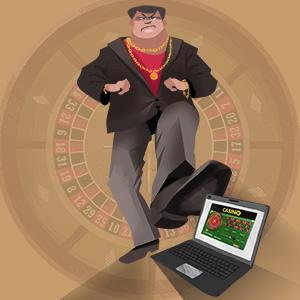 If you ask the states, like New Jersey, Nevada and Delaware, the answer is yes, no problem. These states have already passed laws recognizing the reality of the world in which we live and legalizing online gambling.
If you ask the states, like New Jersey, Nevada and Delaware, the answer is yes, no problem. These states have already passed laws recognizing the reality of the world in which we live and legalizing online gambling.
If you ask states like West Virginia, California, Massachusetts, Michigan, New York, New Hampshire and Pennsylvania, they’ll tell you they’re still talking about it in the state legislature and will get back to you. All of these states are currently discussing legislation to clearly legalize online gambling this year.
If you ask players and providers, they’ll say yes, as long as the casino is registered in a jurisdiction that allows online gambling, i.e. offshore (after all, it’s the internet we’re talking about, you’re gambling in the global ether, which is nowhere really, from the privacy of your own home).
If you ask the banks, they’ll say they’re afraid of the DoJ and their morality police, so if you tell them the money coming into your account is from online casino winnings they’re not supposed to let you have it. Not that you’re under any obligation to tell the bank anything. And as a general rule, the banks are almost always more than happy to take your money… no questions asked.
The nature of the debate
Much of the debate surrounding the legality of online gambling in the US comes down not to issues of morality or religious virtue but unadulterated greed and the ability of select brick and mortar casino owners, much like the mafia dons of old, to control everything they can get their hands on. Unfortunately for them, the free-wheeling, ubiquitous and etherial nature of the internet and online gambling do not lend itself well to the control of oligarchs like Adelson.
 In many ways the legality of online gambling is very similar to the legal medical marijuana issue in the US. There can be strong opinions on both sides of the fence. The Feds, in their over-arching role as global big brother and morality cop, have decided that what they say is all that matters. The federal government always knows best even if their ideas about contemporary life seem, at times, like those of ISIS, to have originated in the dark ages, and have nothing to do with the world in which we live.
In many ways the legality of online gambling is very similar to the legal medical marijuana issue in the US. There can be strong opinions on both sides of the fence. The Feds, in their over-arching role as global big brother and morality cop, have decided that what they say is all that matters. The federal government always knows best even if their ideas about contemporary life seem, at times, like those of ISIS, to have originated in the dark ages, and have nothing to do with the world in which we live.
Well we’ve all seen what’s happened with themedical marijuana issues when We the People were actually asked what we think. The residents of some states say okay, we’re fine with that. Others have said no way, not our thing. Others are still deciding whether to decide.
In those states that did opt to legalize, the boogey men the morality police were so scared of never appeared, chaos did not reign, the world did not end and cancer patients and recreational smokers have breathed a collective (albeit smoke filled) sigh of relief as the threat of jail time for taking a puff dissolved into thin air. Meanwhile, the states that legalized have been laughing all the way to the bank, as their tax revenues soared and continue to grow.
In conclusion
At the end of the day, it comes down to what you believe and which side of the debate you’re on. What consenting adults do in the privacy of their own homes is of no concern of mine. Heck, there’s legions of people around the world having fun putting coins in slot machines or playing slots online right now and they don’t seem to bother a soul. Hopefully, in time, our lawmakers will catch up with the rest of us and pass rules and regulations that actually reflect the reality of what’s going on today i.e. that Americans still gamble. They always have and they always will. And being American is not a crime.





